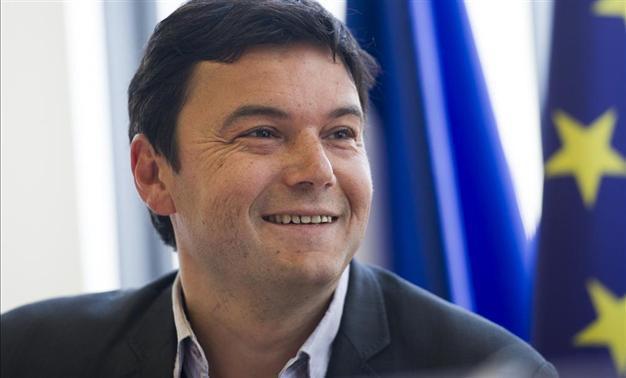Economist Thomas Piketty refuses France's highest honour
PARIS - Agence France-Presse

A file picture taken on March 13, 2013 shows French economist Thomas Piketty smiling during a meeting at the National Assembly in Paris. AFP Photo
France's influential economist Thomas Piketty, author of the bestseller "Capital in the 21st Century", on Thursday refused to accept the country's highest award, the Legion d'honneur, to criticise the Socialist government in power."I have just learned that I was nominated for the Legion of honour. I refuse this nomination because I do not think it is the government's role to decide who is honourable," Piketty told AFP.
"They would do better to concentrate on reviving (economic) growth in France and Europe," added Piketty, who was once close to the Socialist Party but has distanced himself from the policies of President Francois Hollande.
The 43-year-old economist was on the published list of nominees for the prestigious award on January 1. Other recipients included France's two 2014 Nobel laureates, Jean Tirole, the winner of the economics prize, and Patrick Modiano for literature.
Piketty has gained attention worldwide with his book of theories about growing economic inequality, which has sold some 1.5 million copies.
He has captured the attention of readers particularly in the United States, where Piketty met with advisors to President Barack Obama.
The book has been less well received in France as Piketty has become a stern critic of the Hollande government.
He criticises the Socialist president for reneging on his campaign promise of fiscal reforms, including a more progressive tax system.
"No one told me in advance about this nomination, otherwise I would have immediately advised against it," Piketty said.
While it is rare to turn down the award created by Napoleon Bonaparte in 1802, Piketty is not alone.
The list of those who refused the honour includes such French literary notables as Albert Camus, Jean-Paul Sartre and Simone de Beauvoir as well as master artist Claude Monet and celebrated anti-poverty campaigner Abbe Pierre.
Even France's pioneering radiologists Pierre and Marie Curie and global movie star Brigitte Bardot did not want the award.
Their reasons for refusing the Legion d'honneur varied from disagreeing with the government to asserting their independence or indifference.
The composer Hector Berlioz who received the award rather than the 3,000 francs the state had promised him for a requiem mass responded: "I don't give a damn about your cross. Give me my money!"
Piketty's "Capital in the 21st Century" was hailed as the "economic book of the year" by the Financial Times, and the Economist described him as a "modern-day Marx".
In the nearly 1,000-page book he looks at statistics dating back to 1700 to explain that economic growth does not naturally correct inequalities because capital tends to accrue more rapidly in developed countries than is realised -- in other words, the rich always get richer.
Piketty says in the book he sees a potential threat to democratic societies and the values of social justice on which they are based.
The professor at the Paris School of Economics says one solution would be an annual progressive tax on capital, coordinated on a global level.
In all a total of 691 people were nominated this year for France's top honour. One of them was a French volunteer nurse with Doctors Without Borders (Medecins sans Frontieres, or MSF) who was infected with Ebola while helping patients in Liberia and recovered from the disease after undergoing experimental drug treatment in France.
















